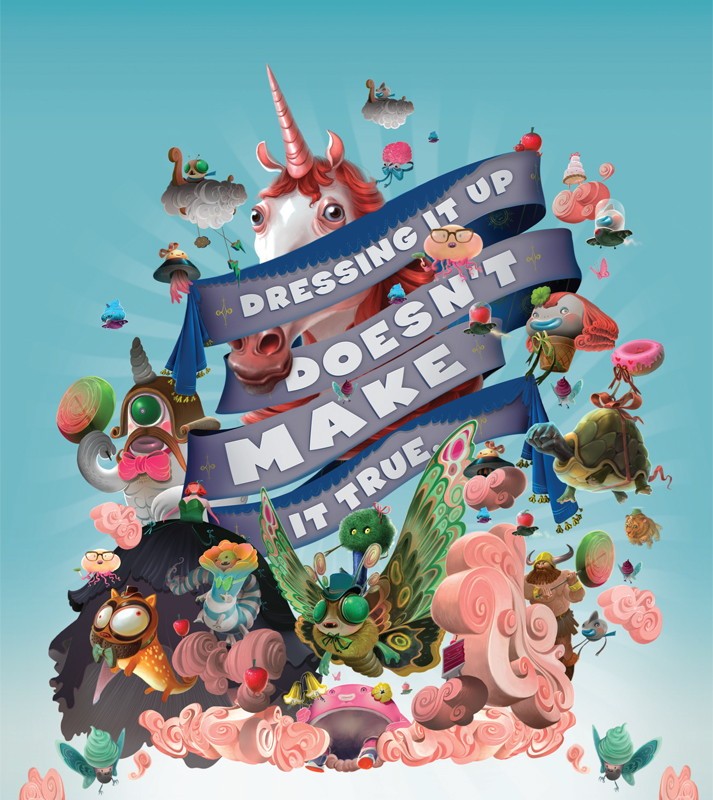Advertisers advertise their commitment to truth
Two routes available for complaints about misleading ads
The Advertising Standards Canada (ASC) wants you to know it’s keeping a watchful eye on shifty advertisers.
Its high-profile “Dressing It Up Doesn’t Make It True” campaign appears in newspapers and magazines, on billboards, buses, radio and television across Canada, as well as online. But what you may not pick up from the depictions of colourful unicorns or people cavorting in animal costumes is that the eagle-eyed ASC consists of – for the most part – advertisers.
“Our mission is to create community confidence in advertising,” said Janet Feasby, ASC vice-president of standards. “We generally run public service campaigns to make the public aware that there is a code that sets standards for acceptable advertising and that it is supported by the advertising industry.”
Feasby added that the ASC has done research showing consumer trust in advertising and advertisers increases when they know there’s a body that sets standards.
Not only the industry’s deep pockets are to be thanked for this education. ASC’s public service announcements rely upon the donation of media space from its members and media partners,” according to ASC’s annual report.
Jon Sears, an international development studies professor at the University of Winnipeg, is critical of the ASC’s campaign.
“I’m not sure how much comfort I take knowing that ... you don’t get a unicorn with this product,” he said.
“(From) what I’m being told the watchdog is doing, it seems to me only the tiniest little slice of corporate responsibility.”
He suggested a more meaningful assessment of a corporation’s ethics would look at their labour practices and sourcing, and whether they take profits offshore or reinvest in communities.
Feasby said ASC’s main function is administering consumer complaints under its self-regulatory Canadian Code of Advertising Standards.
Complaints are examined by volunteer councils comprised of senior ad industry professionals and some public representatives. Volunteers include the CBC, The Hudson’s Bay Company and Unilever representatives, as well as Nestlé‘s vice-president for infant nutrition.
Advertisers are not named publicly if they voluntarily pull an ad under review without waiting for the council’s decision.
“The remedy for non-compliance is you ask the advertiser to withdraw or amend the advertising. We don’t have the ability to levy fines, or anything like that,” Feasby said.
Real penalties could result if the consumer complains elsewhere. The federal Competition Bureau enforces advertising legislation under the Competition Act and the Consumer Packaging and Labeling Act, among others.
The Competition Bureau deals with similar complaints as the ASC, but also a whole lot of other ones the ASC probably doesn’t, said Greg Scott, a senior communications advisor for the Competition Bureau.
The Bureau may require an advertiser to pull an ad, publish corrective notices or pay fines of restitution. Individuals can be fined up to $750,000 and corporations, $10 million or more for repeat offences. The most egregious cases are prosecuted criminally.
The ASC changed its name in 1997 from the Canadian Advertising Federation. Feasby said the name change was not intended to mislead anyone into mistaking the organization for a federal government department.
Published in Volume 66, Number 3 of The Uniter (September 15, 2011)







